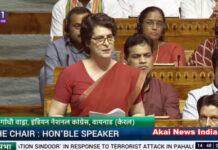“Supreme Court Questions State’s Remission Policy in Bilkis Bano Case, Demands Consistency in Approach”

In connection with the case involving the gang rape and murder of Bilkis Bano’s family during the 2002 Gujarat riots, the Supreme Court, on Thursday, raised questions regarding the selective application of the remission policy by the Gujarat government for 11 life term convicts. The top court expressed concern over the state government’s stance, remarking that it was treading on “thin ice” in this matter.
A bench comprising of Justices B V Nagarathna and Ujjal Bhuyan posed challenging inquiries to the state government, while Additional Solicitor General S V Raju attempted to rationalize the remission according to legal norms and regulations.
The bench emphasized that the opportunity for reformation should be extended to all prisoners, rather than being limited to a few. The court inquired why the remission policy was being selectively employed and stressed the importance of granting the chance for rehabilitation and reintegration to every convict. It questioned the reasoning behind providing remission to those sentenced to life imprisonment, which is the second most severe penalty after the death penalty, in such a scenario.
Raju stated that the state government was bound by a prior Supreme Court order which stipulated that the state’s remission policy would apply to the case. He explained that the remission applications were processed in accordance with Gujarat’s 1992 policy, adhering to all legal requirements.
The application of Section 432 of the Criminal Procedure Code, which deals with the power to suspend or remit sentences, was detailed by Raju in relation to these convicts. He argued that the concept of absolute deterrence doesn’t apply when considering the reformative theory, asserting that individuals should be given the opportunity to reform even after committing serious crimes.
The court scheduled the conclusion of arguments and submissions from all parties for August 24, the next hearing date. During the proceedings, the bench inquired about the necessity of seeking the opinion of the district judge of Godhra, who didn’t preside over the trial of the accused.
The composition of the jail advisory committee, including criticism regarding the presence of two BJP MLAs on the committee, was also queried by the court. Raju was further asked about the negative opinion provided by the CBI when consulted on the remission of convicts.
Raju contended that the legal principle doesn’t dictate perpetual punishment, highlighting the importance of allowing chances for reformation. The bench sought information on the application of this rule, which permits release after 14 years, to other prisoners and urged the counsel to furnish data on the implementation of the remission policy.
A group of petitions challenged the remission granted to the convicts in the Bilkis Bano case in August 2022. Apart from Bano’s own plea, Trinamool Congress (TMC) MP Mahua Moitra, former MP and CPI(M) leader Subhashini Ali, independent journalist Revati Laul, and former vice-chancellor of Lucknow University Roop Rekha Verma also filed petitions against the decision.





